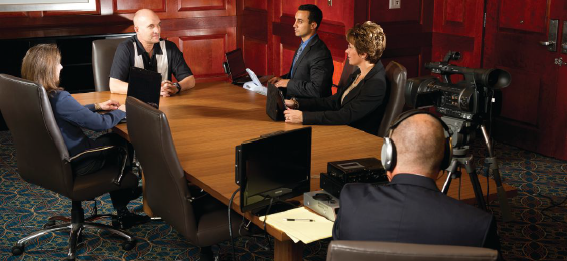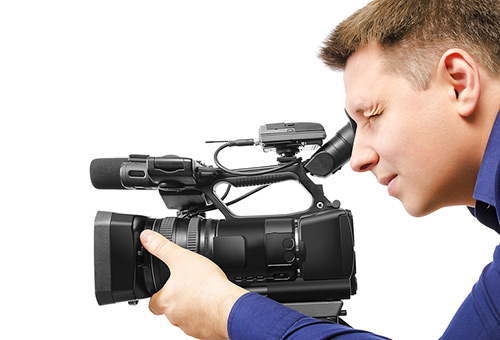Reliable Legal Videography for Capturing Detailed Evidence.
Reliable Legal Videography for Capturing Detailed Evidence.
Blog Article
The Role of Lawful Videography in Depositions and Tests
Lawful videography has actually become a necessary tool in both depositions and tests, offering a diverse technique to documenting witness testimonies. By capturing not only the talked word however additionally the nuances of non-verbal communication, this medium boosts the reliability of testimonies and protects critical evidence for future procedures (legal videography). As attorneys progressively identify its value, it triggers a deeper examination of just how these visual documents can affect juror understandings and trial results. What ramifications might these advancements hold for the future of legal method?

Importance of Legal Videography
Lawful videography plays a crucial duty in the paperwork and presentation of depositions and trials. This specialized area combines technological skills with lawful understanding to develop a trusted record of process that can considerably influence situation end results. The visual facet of lawful videography improves the understanding of witness statement, allowing jurors and judges to observe not just the spoken words however also the disposition, feelings, and body movement of the witnesses.
Furthermore, legal videography provides an objective account of events, lessening the potential for misinterpretation that can take place with created records alone. This aesthetic documents serves as a crucial device during trial presentations, helping with a more clear and more persuasive narrative for both plaintiffs and defendants. In addition, the capability to replay video clip sections throughout court procedures allows lawful teams to stress crucial points, reinforcing their disagreements effectively.
The relevance of lawful videography prolongs past the courtroom; it additionally plays an important role in preserving evidence for future reference, whether for allures or further lawful activity. As such, its combination into the lawful process is essential for ensuring a fair and accurate depiction of the realities, inevitably adding to the search of justice.

Process of Legal Videography
While recording the nuances of depositions and tests, the procedure of lawful videography entails several vital steps that ensure top quality, accurate recordings. Initially, a professional legal videographer prepares by examining the case products and comprehending the specific demands of the deposition or test. This preparation includes familiarizing themselves with the participants and the context, which helps in capturing pertinent information.
On the day of the recording, the videographer establishes up the necessary devices, which typically includes high-def electronic cameras, microphones, and appropriate lighting. Making sure optimum angles and sound quality is important, as it directly influences the efficiency of the recording. The videographer communicates with lawyers and participants to develop procedures, making sure that everybody understands the recording procedure.
Throughout the deposition or test, the videographer carefully videotapes the proceedings, paying attention to both verbal and non-verbal hints. This includes recording the disposition and reactions of witnesses and attorneys. After the session wraps up, the videographer might modify the video footage for clearness and compliance with legal standards, producing a last product that precisely mirrors the proceedings for future reference and use in lawful contexts.
Advantages in Depositions
The unification of videography in depositions offers numerous benefits that boost the total procedure of collecting evidence. One key advantage is the ability to catch witness testaments with visual and auditory fidelity, providing a much more precise representation of the witness's demeanor, tone, and body movement. This multidimensional approach enables lawyers and juries to evaluate reliability extra effectively than standard written transcripts alone.
Additionally, videographed depositions function as an effective device for protecting testament. Needs to a witness ended up being unavailable for browse this site test, their recorded deposition can be played in court, guaranteeing that their evidence remains available and relevant. This aspect substantially reduces the risk of losing crucial information that could influence situation results.

Last but not least, videography boosts the total professionalism and reliability of the deposition procedure, instilling self-confidence in clients pertaining to the thoroughness of their lawful depiction (legal videography). By leveraging innovation, attorneys can dramatically enhance the efficiency of depositions
Effect On Tests
In many trials, the integration of videography can dramatically influence the discussion of proof and the jury's perception. Legal videography captures witness testaments and crucial proof in a vibrant layout, allowing jurors to involve with the material on numerous levels. This aesthetic element enhances the storytelling facet of a test, offering context and psychological resonance that typical text-based evidence may do not have.
Moreover, video recordings can act as powerful devices for impeachment during cross-examination. When inconsistencies occur in between a witness's previous declarations and their court testament, video proof gives an objective reference that can sway jurors' opinions. This immediacy and quality can reinforce the reliability of a party's narrative while simultaneously threatening opposing disagreements.

Future Trends in Legal Videography
As we look towards the future of legal videography, numerous arising trends guarantee to reshape its role within the courtroom. One considerable pattern is the assimilation of artificial intelligence (AI) in video clip evaluation and editing and enhancing. AI can improve the process of recognizing essential moments in tape-recorded depositions, enabling attorneys to quickly access pertinent material, consequently enhancing read more efficiency in instance preparation.
Furthermore, the increase of digital fact (VR) and enhanced reality (AR) innovations is expected to transform just how jurors experience evidence. legal videography. By submersing jurors in a simulated setting, these technologies can offer a much more extensive understanding of intricate circumstances, resulting in more educated considerations
Moreover, the raising demand for remote depositions, sped up by the COVID-19 pandemic, will likely continue. Lawful videographers will need to adjust to new software program and platforms to ensure high-quality recordings in digital settings.
Lastly, the growing emphasis on information protection will certainly require stricter methods for keeping and sharing video clip proof. As the legal landscape progresses, legal videographers have to remain abreast of these trends to preserve their importance and efficiency in the judicial process.
Final Thought
In summary, legal videography offers a crucial function in the judicial process, improving the integrity of depositions and trials. As technology continues to advance, lawful videography is positioned to further transform its duty within the lawful landscape.
Report this page